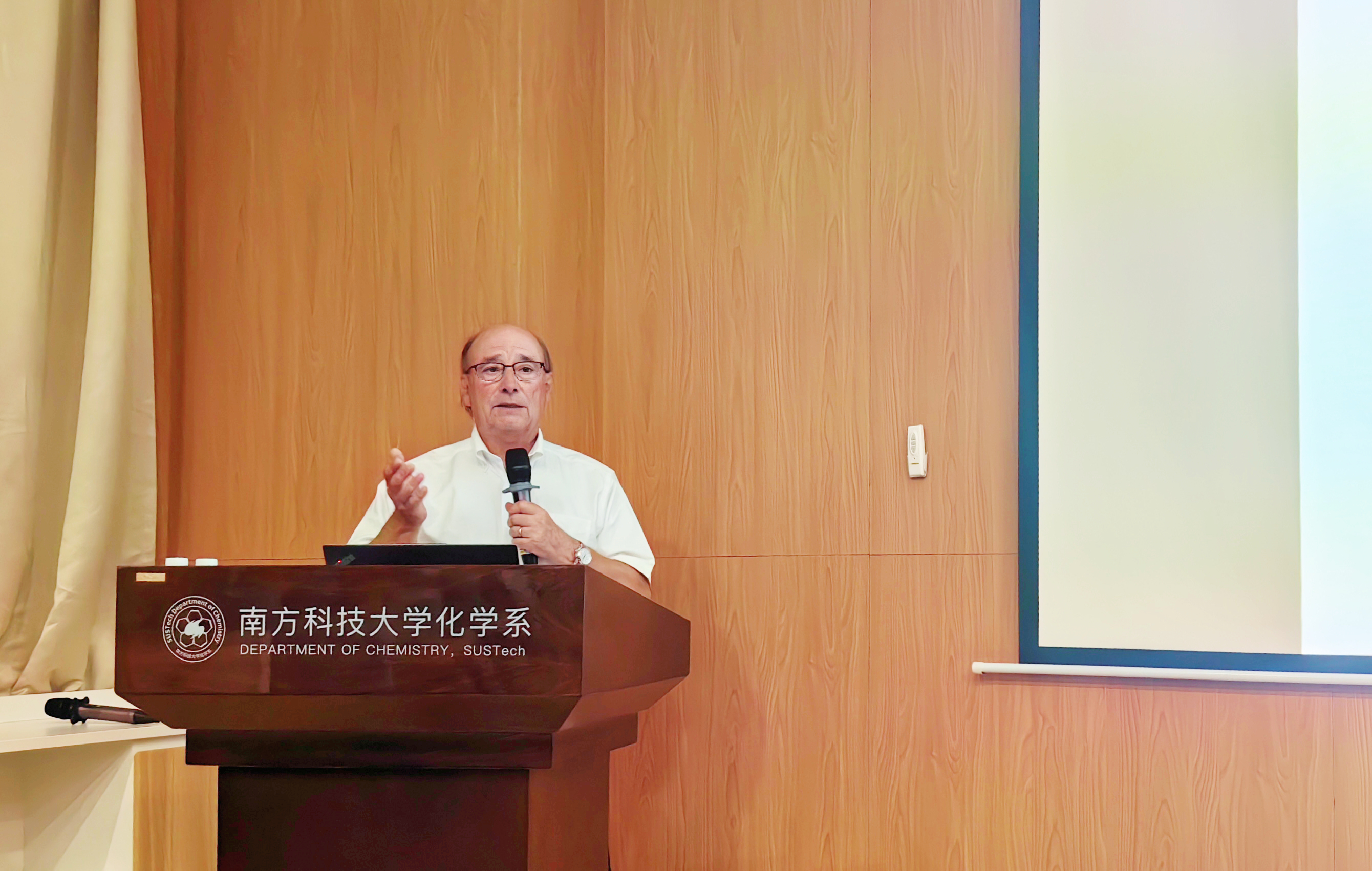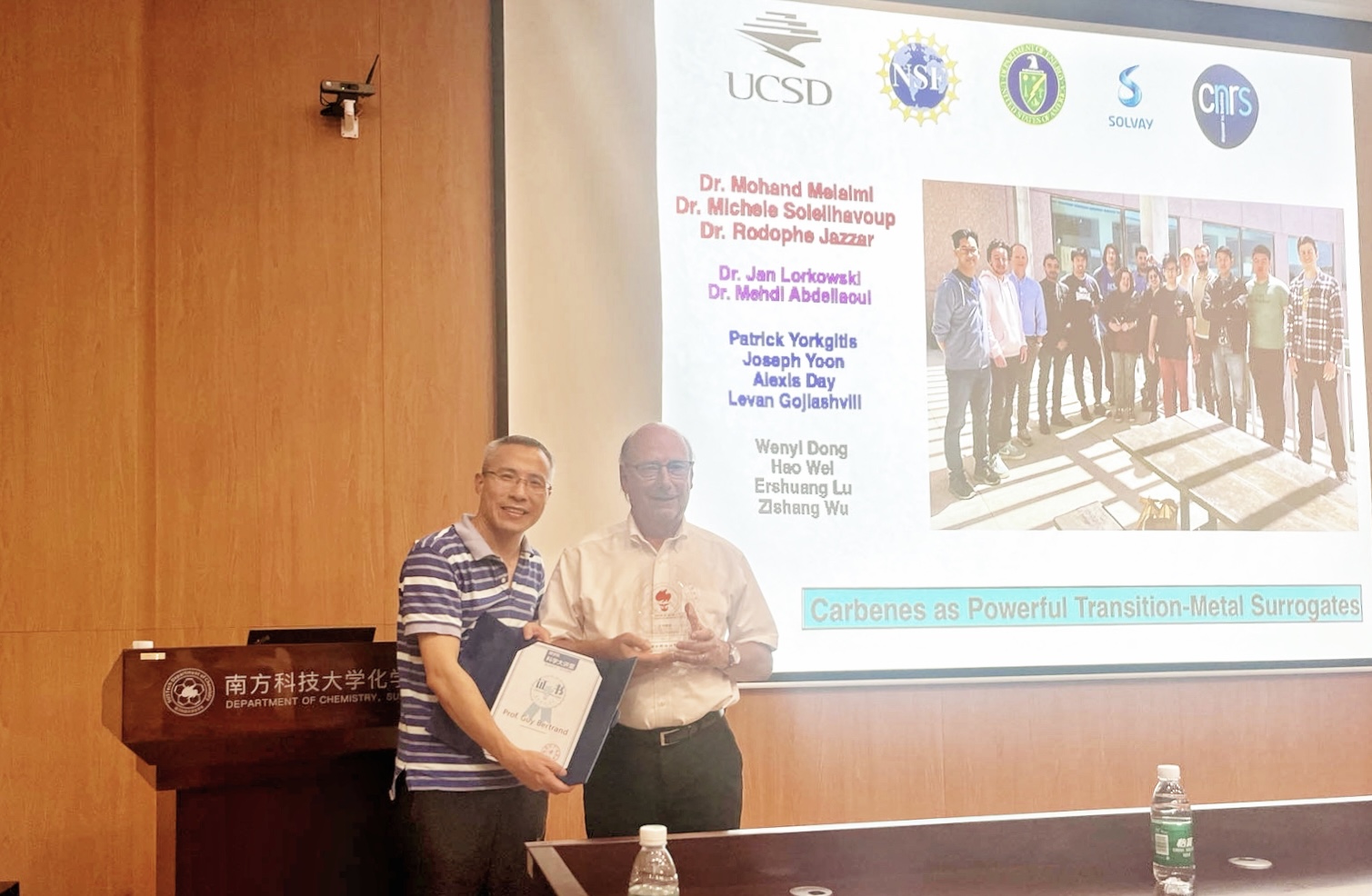Guy Bertrand shares his research at Science Lecture
2024-07-16
On July 12, 2024, Professor Guy Bertrand from the the Department of Chemistry at the University of California was invited to the 158th Science Lecture at the College of Science. He delivered a lecture titled “Carbenes as Powerful Transition-Metal Surrogates”, chaired by Associate Professor Liu LIU of the Department of Chemistry, SUSTech.

In the lecture, Prof. Bertrand introduced the historical development of carbene chemistry (including the foundational work his team has done in the field of carbene chemistry) and shared his team’s recent applications and mechanistic studies on the use of carbenes to mimic transition metal-catalyzed organic synthesis reactions. Depending on the type of carbenes used, the catalytic mechanism can either proceed through a two-electron process or a single-electron radical pathway. This catalytic reaction can not only achieve the hydrogen-deuterium exchange reaction of organic aldehydes but also catalyze the coupling reaction of aryl iodides with olefin compounds.
Subsequently, Prof. Bertrand introduced his team's recent progress in stabilizing carbon dications and neutral secondary carbon radicals. He then shared his team’s research on the two-electron redox reaction from carbon dications to neutral carbenes and discussed the future prospects of using this two-electron redox process in chemical catalysis.
During the Q&A session, the on-site teachers and students actively asked questions about the reactivity of carbenes in catalyzing specific substrates and their subsequent catalytic synthesis applications. Additionally, some faculty members sought Prof. Bertrand's advice on practical experiences in leading a research group. Prof. Bertrand provided detailed answers to all the questions.
Q: MIC carbenes can act as strong electron-donating ligands to achieve the reduction of aryl halides. Can they also achieve the reduction of alkyl halides?
A: Yes, it is possible, but currently, only the reduction of alkyl iodides can be achieved. The reduction of alkyl chlorides and bromides is not yet possible.
Q: In the carbene-catalyzed cyclization reactions, I noticed that the yield of the quaternary carbon products is not high. I wonder if this is because the steric hindrance of the products is relatively large, leading to lower yields?
A: First of all, we have conducted this reaction relatively few times, and the reaction conditions have not been fully optimized. Therefore, I can only say that the specific reason is not very clear at the moment. However, I believe that steric hindrance is one of the reasons.
In conclusion, Chair Professor Xinyuan LIU, Head of Department of Chemistry, handed an honorary certificate to Prof. Guy Bertrand.





